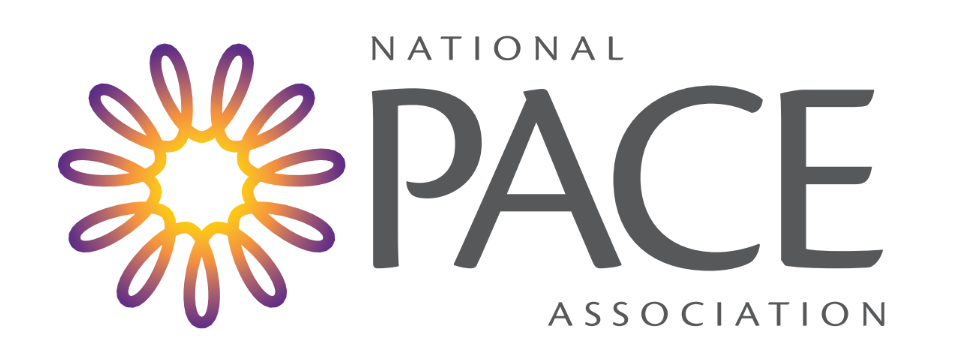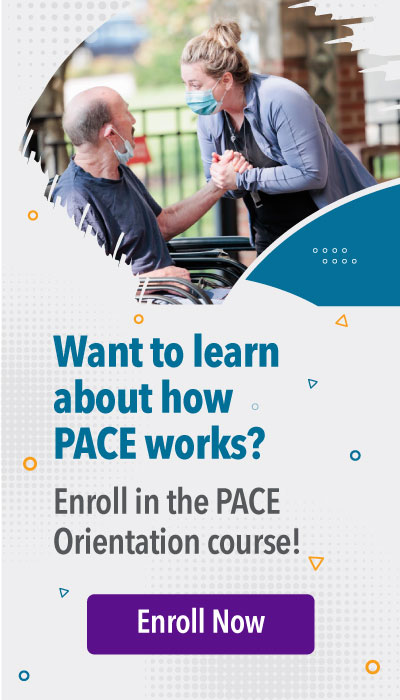Student Resource Center

The National PACE Association (NPA) provides information and resources for college and university students interested in learning more about Programs of All-Inclusive Care for the Elderly (PACE).
National PACE Association
The National PACE Association (NPA) advances the efforts of Programs of All-Inclusive Care for the Elderly (PACE®). PACE programs coordinate and provide all needed preventive, primary, acute and long-term care services so older individuals can continue living in the community.
What Is PACE?
PACE stands for Programs of All-Inclusive Care for the Elderly. PACE is a comprehensive, fully integrated, provider-based health plan for individuals in need of nursing home care. To enroll in PACE, an individual must be age 55 or over, certified by the state to need a nursing home level of care, live in a PACE service area, and be able to live safely in the community with PACE services at the time of enrollment.
The PACE philosophy is centered on the belief that it is better for frail individuals and their families to be served in the community whenever possible rather than in a nursing home.
PACE Participants
While all PACE participants are eligible for nursing home care, 95 percent continue to live at home. The average PACE participant is female (70 percent) and has multiple chronic conditions. The top five diagnoses are vascular disease; diabetes with chronic complications; congestive heart failure; major depressive, bipolar and paranoid disorders; and chronic obstructive pulmonary disease.
PACE is funded primarily through Medicare, the federal health insurance for seniors and people with disabilities, and Medicaid, the state health insurance for low-income individuals. PACE participants are among the most frail and costly Medicare and Medicaid beneficiaries. Approximately 90 percent of PACE participants qualify for both Medicare and Medicaid, making them “dual eligible.”
PACE Organizations
PACE organizations assume full financial risk for the services they provide to participants. Once a person enrolls in the program, PACE is financially responsible for emergency room visits, hospital stays and nursing home placement. Because PACE is at full financial risk, the financial incentives align with the clinical incentives for high-quality care.
Organizations that want to offer a PACE program enter into an agreement with the Centers for Medicare & Medicaid Services (CMS), a division of the U.S. Department of Health and Human Services (HHS), and their state Medicaid agency.
Resources
- Understanding the PACE Model of Care
- Interactive Map of Potential PACE-Eligible Populations
- PACE 2.0 “Before I Found PACE” Video Series
- PACE Finder
- PACE Services
- Bibliography of PACE Studies
Articles
- Aligning Geriatric Medicine Fellowships with the Program of All-Inclusive Care for the Elderly (PACE) (Gerontology & Geriatrics Education, 2018)
- Joe’s Story: How a Capitated Payment Model Lets Me Be the Physician I Want to Be (Annals of Family Medicine, 2024)
- PACE Organizations Bring Students on Board
- Prioritizing Geriatrics in Medical Education Improves Care for All (Medical Education Online, 2022)
For More Information
Contact Member Services

